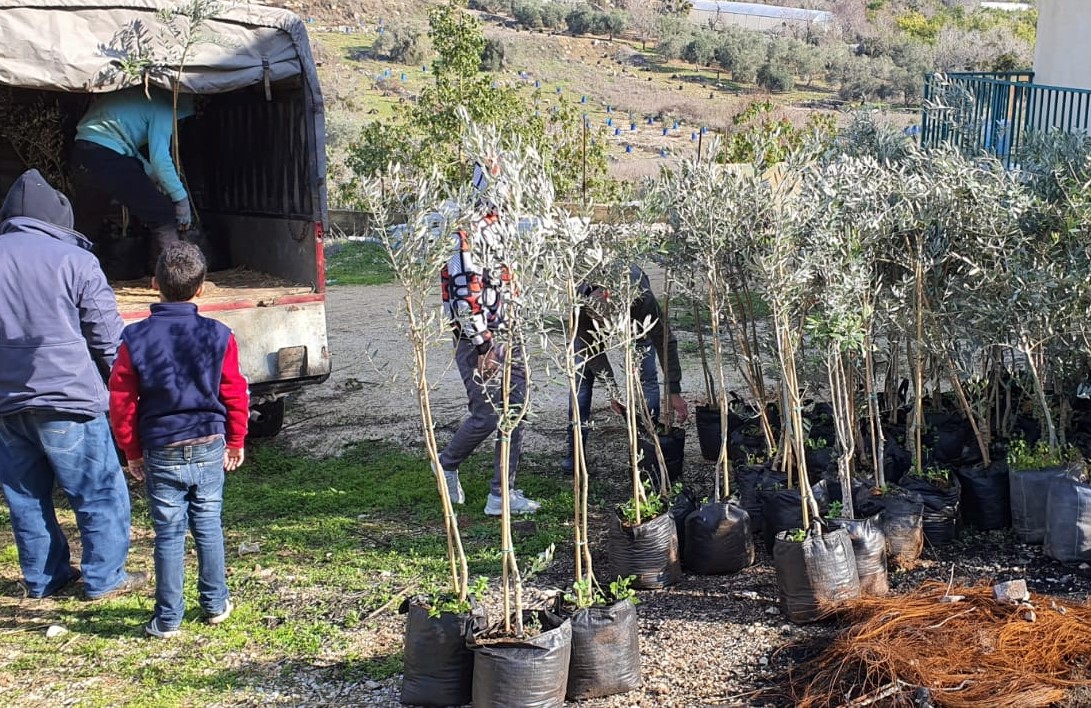The Israeli army prevented 200 Israeli peace activists from planting trees alongside Palestinian farmers in the occupied territories on Friday, February 14 to commemorate Tu B’Shevat (the 15th day of the Hebrew month of Shevat), a Jewish festival that celebrates nature and renewal. The initiative was launched by Rabbis for Human Rights (RHR), Combatants for Peace, Standing Together and Zazim, all Israeli human rights organizations, and was scheduled to take place with the participation of farmers from the Palestinian village of Yasuf, located in the northern West Bank.

The olive tree saplings that were to be planted at Yasuf in the occupied West Bank on Friday, February 14, 2020 (Photo: Rabbis for Human Rights)
During the harvest period, olive trees were vandalized in plots of land nearby the Israeli settlement of Kfar Tapuach, and the Israeli activists wanted to be present when the Palestinian farmers went back and replanted trees at the location.
According to the Israeli activists, the occupation soldiers told them that they were not permitted pass when they were on their way to Yasuf, even though the troops did not specifically have a warrant against their activity there. As the activists’ bus from Tel Aviv reached the entrance to Yasuf, the Israeli soldiers closed the road leading to the village and prevented them from entering. After being stopped and questioned by the soldiers for a long time, the activists managed to reach the village, where the residents welcomed them at the Village Council and held a demonstration.
RHR executive director Avi Dabush said: “We came to plant olive trees with rural Palestinian farmers who suffer from systematic violence and harassment, and honor together Tu B’Shevat, the Jewish new year for trees, with the hope that this kind of activity will build optimism and solidarity between us and our Palestinian partners. It is sad and humbling to see how indiscriminately and arbitrarily the army issues ‘closed military’ orders as a way to prevent activity that is only about agriculture and peace. It is beyond my understanding why the army would interpret the planting of olive trees and the eating of dried fruit as ‘disturbing the peace.’ Surely the only thing being violated here is the only one that is truly relevant – the traditional call to plant trees on Tu B’Shevat.”


